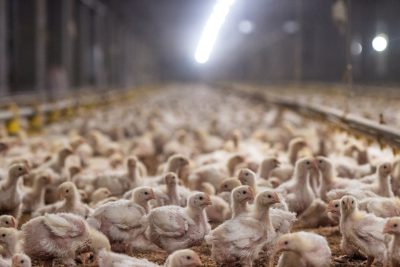Every one of us is exposed to social conditioning. It’s how we fit into our community, culture and country. It’s why we wear, watch, eat and to a large extent think the way we do. We are actively taught some of it, the rest we pick up from parents, wider family, school, friends, the media, the laws of the land, and our political and religious leaders.
There is a benefit to it, of course: social cohesion, a feeling of belonging, but that does not mean that every aspect works for us or that we agree with it all, and none of it is beyond our examination. On the contrary, we should question the things we do automatically and that seem normal, even natural to us. We should ask ourselves: Did I choose this, or is it something that I have been conditioned to do? If the latter, that begs one more question: Is this something I want to continue with, or does it actually clash with my own core beliefs?
Acting Against Our Own Beliefs
Social conditioning is so powerful and pervasive that we don’t even recognise it is happening. When was the last time we questioned why we shave the very specific body parts we do, for example, or why we eat a particular food for breakfast every day? And do we really want to? These are minor examples that may not affect or offend our principles, but social conditioning can make us do things that we don’t even like, things we may even passionately oppose. And it can make us do those things every single day for our whole lives without us even realising we are living a contradiction. That’s some power!
We Love Animals, We Eat Animals
It’s a bit odd, isn’t it? As children we are taught to be kind to animals and not to hurt them. We see that they are friends, and we share an understanding, a bond of affection and trust. We love them but all the while we are petting our dog or cuddling our cat, we are also eating the chicken or ham sandwich we are given. We don’t question this, but why would we? As children, we are used to being shown what ‘normal’ is in society, and it’s not as if anyone asks us if we actually want to eat animals.
Not only are we not given a choice, the truth is often deliberately withheld. Most children are not told that meat is an animal, while some are deliberately lied to, and that deception leads children to believe that ‘chicken the animal’ and ‘chicken the food’ are completely different things. In time, they come to understand, and they may ask why we eat chickens or pigs but not dogs or cats, only to be told that’s just the way it is.
And so we grow into adults living with this cognitive dissonance – the common psychological phenomenon of holding contradictory beliefs, ideas, or values at the same time. We love animals but we eat animals. Because that’s just the way it is.
Carnism
Psychologist Melanie Joy coined the term carnism to describe the ideology that eating animals is normal, natural and necessary. It’s a dominant ideology and it’s all-pervasive but that doesn’t make it right. After all, it’s a violent ideology (meat cannot be obtained without violence) and many other violent ideologies have been identified, challenged and thankfully stopped.
Carnism runs counter to core human values like compassion and justice. It numbs those feelings of compassion for farmed animals while we still believe ourselves to be animal lovers. After all, we donate to local animal shelters, move spiders gently, and wouldn’t dream of actively causing suffering ourselves.
And in this way, we spend our whole lives acting against our own values, and we don’t even know we are doing it! If uncomfortable feelings come up, we simply knock them down by mocking or debasing the animal victims. We call them stupid or ugly, or we laugh at the ‘funny’ things they do. We say, if we weren’t supposed to eat them, how come they taste so good?
Because this is what carnism does. It teaches us that some animals are worthless, that they are lacking in feelings, personality and intelligence, even though we know for sure that our dog has a distinct personality, a love of life and can feel pain, sadness and loneliness. If we free ourselves from that lifelong social conditioning just for a moment and open our minds, we see with absolute clarity that it’s the same for pigs. Of course, it is.
Distorting Truth
Not only are animals made victims when we consider them worthless, they can become victims when we consider them holy. In India, calling a cow ‘mother’ or ‘Gaumata’, and seeing her as a divine being leads to the very same outcome as thinking of her as trash. It stops people from really seeing what happens to cows – that in dairies, they are often tied so tightly to a railing or post they are unable to shoo away a crow pecking at a wound; that they are secured with ropes through their pierced noses, often so tightly they become embedded in the flesh; that cows are kept on hard floors which leads to lifelong painful lameness; that they may be turned out into the streets, kept in overcrowded gaushalas without proper care, or sent to illegal slaughterhouses when they are of no further use. But milk is a gift from mother, and so we continue to take it, no matter the physical and emotional cost to the animal. No matter the suffering we cause her.
Deifying animals can be as damaging as demonising them.
Hidden Victims
Carnism is the reason that people support an industry that unnecessarily kills more animals in one week than the total number of people killed in all wars throughout history. It’s just that we don’t get to see these victims as they are locked away in factory farms, and for most of us, thoughts of their existence – miserable and pain-filled as that may be – don’t trouble us at all.
But we are also hidden victims of this system. We pay for our consumption of animal products with heart disease, type 2 diabetes, and some cancers, and – says Melanie Joy – we also pay for it with quashed compassion and loss of objectivity.
Shining a Light
When we first see footage of animals in farms, transportation and slaughterhouses, the emotions can be overwhelming. We know we play a part in it, and yet we don’t ever remember making a decision that we wanted to. Because we never did. It was made for us and we accepted it because that’s just the way it is.
But something amazing happens when we face squarely these acts of violence. Yes, we feel angry, sad, and hurt. We may feel shock and guilt. But the one thing we all feel is empowered. Finally, we get to choose. And when we choose to eat plant-based vegan foods, the blinkers fall away, and we see so very clearly that chicken curry is no different to dog curry.
Psychological scientist Dr Julia Shaw, author of Evil: The Science Behind Humanity’s Dark Side, urges us to face up to this: “Social habits can cast a veil over our moral conflicts, by normalising behaviours and making them invisible and resistant to change. It is time for a revolution in how we talk about human beings, animals and the planet, and acknowledge our own hypocrisies. Rather than doing mental gymnastics to justify unethical behaviour, we must consider actually changing it.”
Finding Peace
When we face up to the suffering of animals, we can end our own role in it but we must still live with the knowledge that animals still suffer. It isn’t easy to live happily knowing that others are suffering so badly, and so unnecessarily. Melanie Joy describes secondary-traumatic stress (STS) that affects many vegans. It’s like post-traumatic stress, but it affects those who witness violence, rather than those who are direct victims of it. She recommends – as does Generation Vegan – that vegans stop watching videos that traumatize them. While we are already vegan, and working to encourage others to end their unwitting role in animal suffering, we can and must find some peace and happiness for ourselves, too.
With thanks to Dr Melanie Joy and her excellent talk, Towards Rational, Authentic Food Choices, which you can see here:



